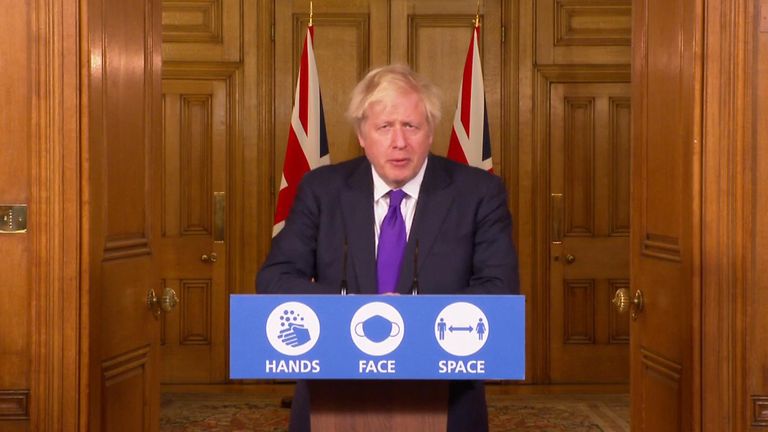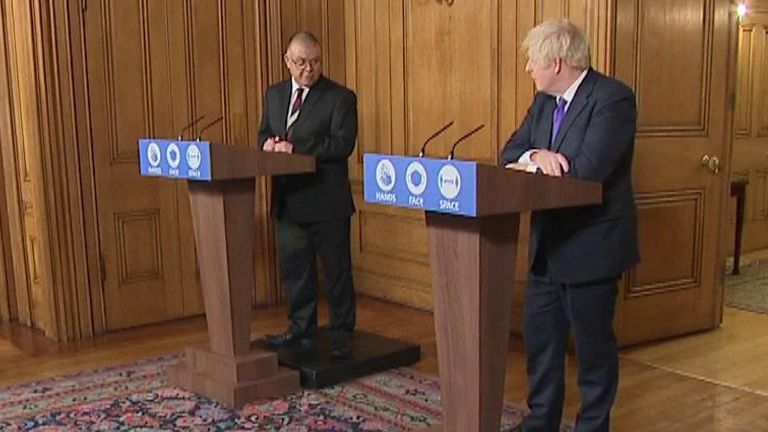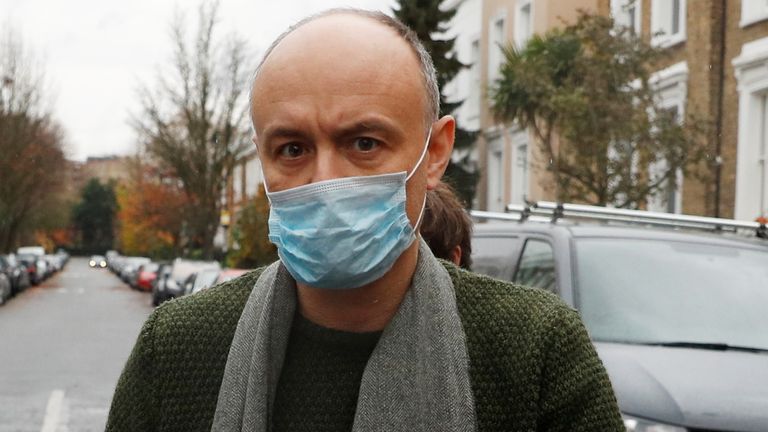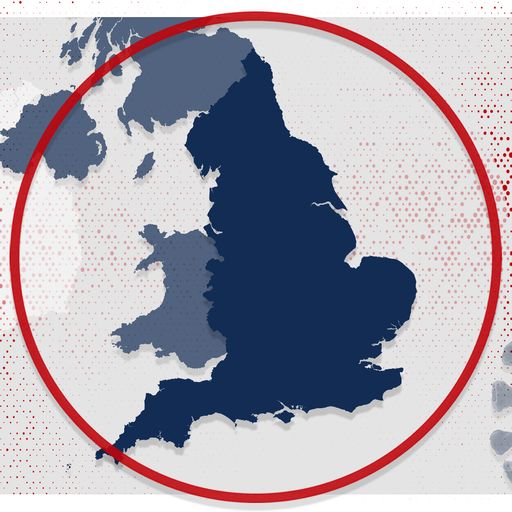COVID vaccine roll-out turns page on tiers rebellion - but 'deeper mistrust' growing around PM
Mr Johnson is undoubtedly a charismatic, vote-winning campaigner, but many MPs think the administration has lacked competence.
Thursday 3 December 2020 08:47, UK
Almost a year living with COVID, finally on Wednesday came a genuinely brilliant breakthrough: the UK regulator became the first in the world to approve the Pzifer-BioNTech vaccine, with the roll-out of jabs to the most vulnerable in our society beginning next week.
The prime minister, in characteristically flamboyant language, used a press conference to praise scientists for performing "a kind of biological jujutsu" on the virus.
"All the time we have been waiting and hoping for the day when the searchlights of science would pick out our invisible enemy and give us the power to stop the enemy from making us ill - and now the scientists have done it," he said.
And now in the coming weeks and months the NHS will embark upon the biggest programme of mass vaccination in the history of the UK.
The process of developing and approving a vaccine - normally a decade in the making - done in 10 months, is a truly great achievement.
Professor Jonathan Van-Tam, deputy chief medical officer, said he was emotional upon hearing about the development and approval of the vaccine, which he described as a "momentous journey".
But the hope tempered with a hefty dose of realism too.
The vaccine will take months to roll out. Scientists don't know if it stops transmission, and we are probably going to have to live with COVID forever - although more like we would a seasonal virus like flu, rather than the life-stopping restrictions brought about by this pandemic.
And in the meantime, the tier system so loathed by Tory MPs looks set to stay.
When I asked the prime minister whether he'd roll the system over on 3 February, when the current restrictions legally expire, he said this: "We will judge the situation on the basis of the data, but I think for the time being you've got to take it that tiering is going to be a very important part in our campaign against coronavirus and it's absolutely vital that people stick to the guidance and follow the rules."
:: Subscribe to the Daily podcast on Apple Podcasts, Google Podcasts, Spotify, Spreaker
The vaccine news turned the page on the Conservative rebellion over the policy on Tuesday night, when 55 Conservative MPs voted against the government and a further 16 abstained.
A year ago, Boris Johnson was elected with an 80-seat majority and on the eve of that election victory he lost that majority - a serious blow to his authority.
And that authority could be challenged quickly again in the coming days and weeks.
On Brexit, MPs are watching to see whether the departure of Dominic Cummings means a compromise is about to be rolled out, which could prove very problematic indeed with his MPs.
And what about COVID?
MPs were unconvinced about the PM's hints that their areas could be moved down the tier system. Or that the country could be at a different point in February, when just days before the PM had argued in his winter plan that "January and February [my italics] are traditionally the hardest months for the NHS, the depths of winter, when our hospital wards are under the greatest pressure".
Everything points to the tiers system rolling over, even in the PM doesn't want to say it.
The PM obviously promised a sunset clause on the current round of restrictions in order to placate his party. But he can't promise there won't be a rollover because he can't predict how COVID - or all of us - will behave over December and into January.
How much longer-term difficulty is he in?
There is a party management issue brought about by the disdain the Dominic Cummings-led Number 10 showed towards the parliamentary party. His sacking last month is a start in repairing relations with MPs.
But there is a deeper mistrust, too, growing around this prime minister.
Mr Johnson is undoubtedly a charismatic, vote-winning campaigner, but on the business of governing many of his MPs think the administration has lacked competence.
Those misgivings are more deep-seated that character clashes of personnel because they speak to the essence of the leader himself.
In good times, such shortcomings can be overlooked, but in crisis they are amplified in the sorts of missteps that have defined much of the government's handling of the coronavirus crisis.
Of course, as the vaccine is rolled out, optimism returns and the economy begins to recover, the prime minister could well be afforded a big bounce in the country and within his party, and this rebellion might be a distant memory.
But this week put down a marker, and as this crisis moves from a public health one to an economic one, there will be plenty more difficult, divisive decisions for the prime minister to make around tax and spending policies and where to distribute wealth and investment as he juggles the competing demands of his new Blue Wall seats and traditional Tory shires.
The prime minister may have a big majority, but this week proved that this will not be an easy parliamentary term.








